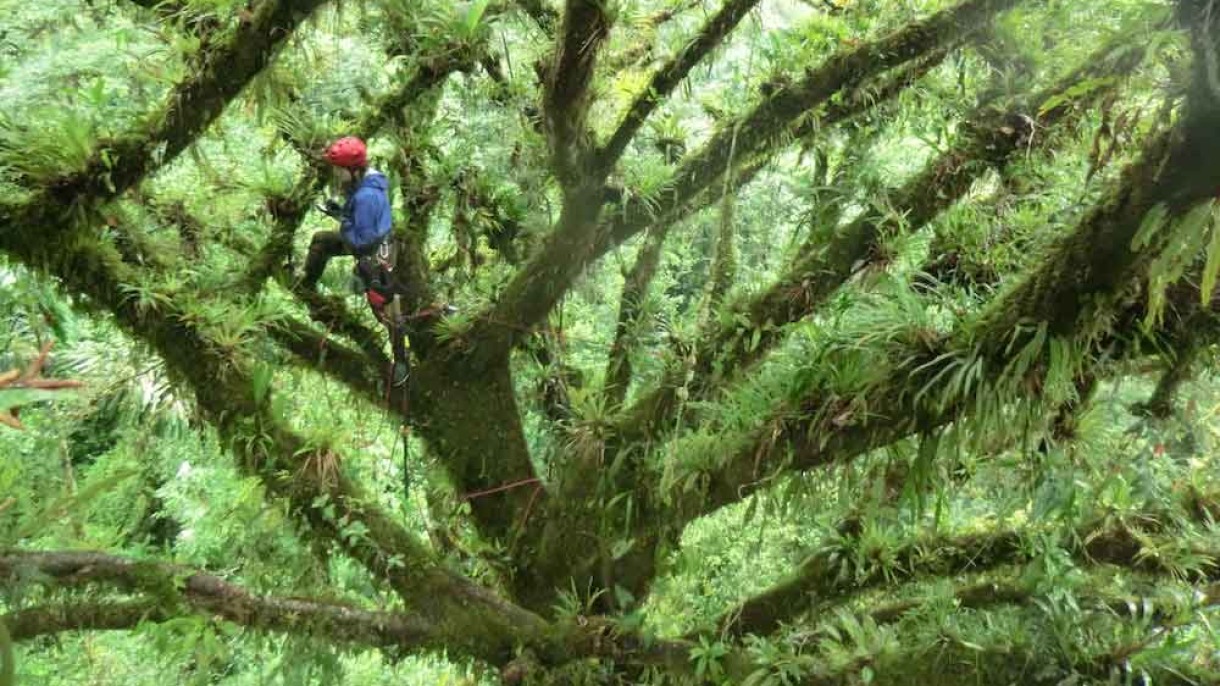Climate change is a pressing issue that affects ecosystems worldwide, and a recent study conducted by Brown University biologists sheds light on the impacts of climate change on plant species in tropical mountain regions. The study, led by Emily Hollenbeck during her Ph.D. research in ecology and evolutionary biology at Brown, focused on understanding how small variations in temperature and moisture can have significant effects on plant species in the Monteverde mountain region of Costa Rica.
Hollenbeck’s research involved documenting the occurrences of epiphyte species on three mountains in Costa Rica and Panama. Epiphytes are plants that grow on other plants, such as trees, without drawing nutrients from the ground. Through a series of experiments where she transplanted plant species among sites with varying elevation, temperature, and aridity, Hollenbeck observed and quantified the effects of these environmental factors on the plants.
The findings of the study, published in Nature Communications, revealed that most epiphyte species struggled to survive outside their native ranges in even slightly different climate conditions. This suggests that small changes in temperature and moisture can have massive impacts on plant species in tropical mountain regions, threatening not only the plants themselves but also the ecosystems they support.
According to Hollenbeck, who is now the president of the Monteverde Conservation League, a Costa Rican nonprofit focused on conserving tropical ecosystems, the study provides important evidence to support the observations of local residents who have noticed significant shifts in the natural world over the past few decades due to climate change.
The study’s co-author, Dov Sax, a professor of ecology, evolution, and organismal biology at Brown, emphasized the importance of understanding extinction risks posed by climate change, especially in tropical mountain regions with diverse ecosystems. Sax noted that current estimates of extinction risk are based on statistical models that may not accurately capture the complexities of tropical settings where species distributions are poorly documented.
The research conducted by Hollenbeck and Sax addresses these limitations by focusing on tropical epiphytes in the mountains of Costa Rica and Panama. The study required an extraordinary amount of work to provide valuable insights into how climate change may impact plant species in these regions.
Overall, the study highlights the urgent need for further research and conservation efforts to protect plant species in tropical mountain regions from the detrimental effects of climate change. By understanding how small variations in temperature and moisture can impact these plants, scientists and conservationists can work towards mitigating the threats posed by climate change and preserving the biodiversity of these vital ecosystems.

